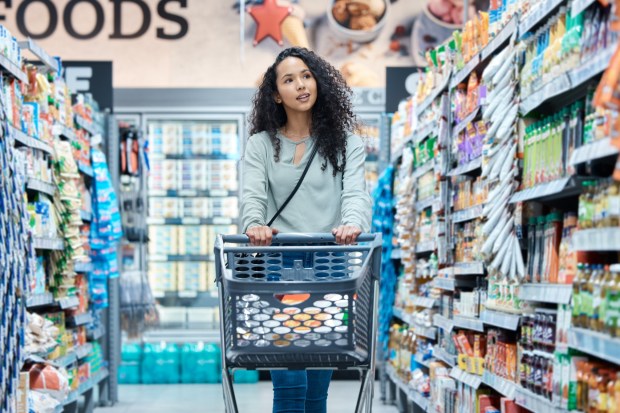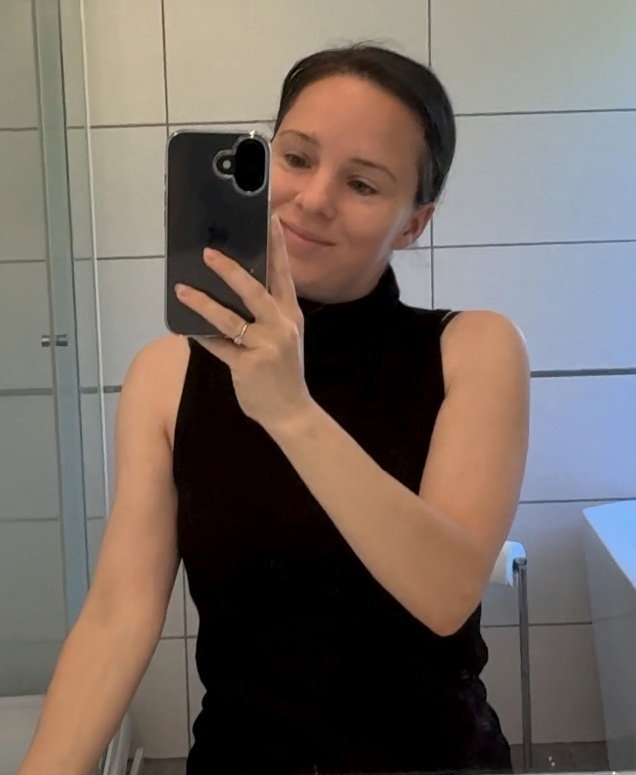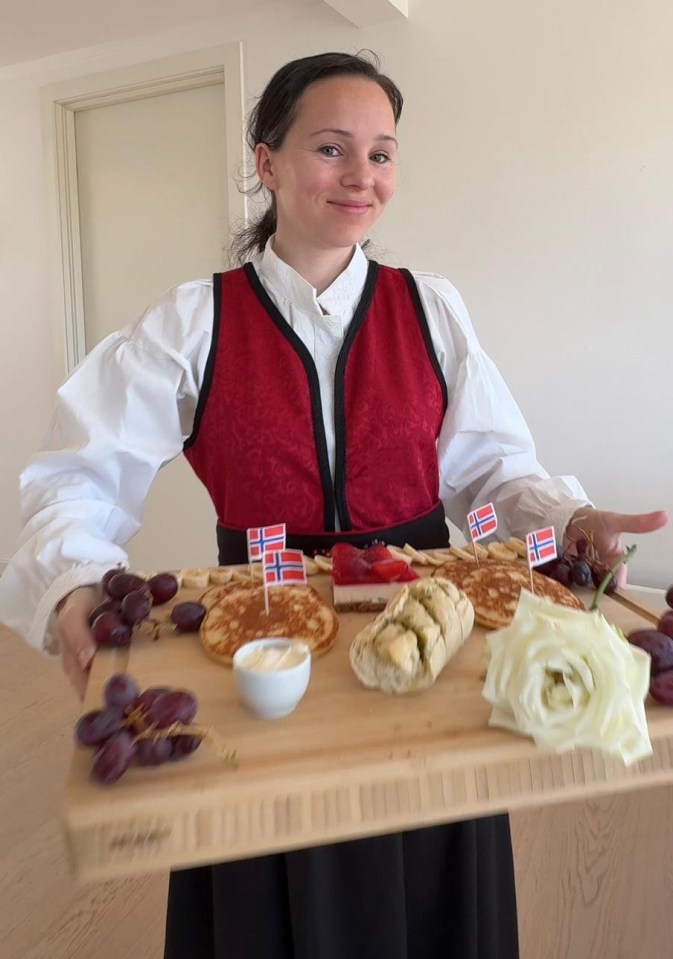A WOMAN so poor she lived off free food samples from a local petrol station and only used candlelight – revealed the three things she’s done to turn her finances around and save £33k in three-and-a-half years.
Reyjka Elle, 32, grew up in poverty and fell onto even harder times when she had to begin providing for herself aged 18 while living in Florida, Georgia, US.
For the following six years she budgeted to the extreme – selling all of her furniture as well as switching off her electricity and living by candlelight.
She secured a job as a therapist assistant by “pure luck” and has since met her husband, graduated with a degree in psychology and is working as a content creator and writer earning close to £3k per month.
Despite being financially stable now, Reyjka says her previous years in poverty “still affects” her and she “feels guilt” when she buys things.
She says saving is “multi-faceted” and the three things she does to help her budget are keeping a track of her income and expenses, investing in high yield accounts and working from home to avoid having to live in city centres in favour of quieter neighbourhoods with lower rent.
Through investing her money, as well as side hustles, Reyjka and her husband have been able to save £33,600.
Reyjka, a content creator, now living in Mandel, Norway, said: “Growing up in poverty I always had a budget mindset.
“It really kicked in once I was on my own and had to provide for myself.
“I had to think strategically in every aspect.
“In the USA you get paid roughly £37 to donate blood.
“I was having to donate blood constantly just to get a meal or two.
“I almost joined the military for a place to sleep and earn money – I didn’t have an apartment at the time.
“Once I had 35p left in my account and did not get paid for another week.
“I had to live on free food samples at the petrol station.
“Now things are so much better.
“My husband and I started investing and that’s where our money started to multiply.
“To this day it definitely still affects me. I’m afraid to spend on things.”
How to save money on your food shop

Consumer reporter Sam Walker reveals how you can save hundreds of pounds a year:
Odd boxes – plenty of retailers offer slightly misshapen fruit and veg or surplus food at a discounted price.
Lidl sells five kilos of fruit and veg for just £1.50 through its Waste Not scheme while Aldi shoppers can get Too Good to Go bags which contain £10 worth of all kinds of products for £3.30.
Sainsbury’s also sells £2 “Taste Me, Don’t Waste Me” fruit and veg boxes to help shoppers reduced food waste and save cash.
Food waste apps – food waste apps work by helping shops, cafes, restaurants and other businesses shift stock that is due to go out of date and passing it on to members of the public.
Some of the most notable ones include Too Good to Go and Olio.
Too Good to Go’s app is free to sign up to and is used by millions of people across the UK, letting users buy food at a discount.
Olio works similarly, except users can collect both food and other household items for free from neighbours and businesses.
Yellow sticker bargains – yellow sticker bargains, sometimes orange and red in certain supermarkets, are a great way of getting food on the cheap.
But what time to head out to get the best deals varies depending on the retailer. You can see the best times for each supermarket here.
Super cheap bargains – sign up to bargain hunter Facebook groups like Extreme Couponing and Bargains UK where shoppers regularly post hauls they’ve found on the cheap, including food finds.
“Downshift” – you will almost always save money going for a supermarket’s own-brand economy lines rather than premium brands.
The move to lower-tier ranges, also known as “downshifting” and hailed by consumer expert Martin Lewis, could save you hundreds of pounds a year on your food shop.
Reyjka was 18 when she began sleeping on friends’ couches as she couldn’t afford an apartment of her own – even living in her car for a short period.
After getting a job at Target aged 23 she began renting a room in a house with friends in Florida, Georgia.
She said: “I was working but with my co-workers when there was a pizza party I would have to eat the leftovers because I didn’t have food at home.
“My electricity was turned off all the time so I would have to use candles.
“I would buy clothes and keep the tags on them and wear them, and return them because I couldn’t afford to keep them.
“This was like from aged 18 to 26 – that entire time period where I was doing these crazy things to save money and get things for free.”
At 26, Reyjka got a higher paying job as a therapist assistant, hitting it off with the hiring manager who gave her “a chance”.
She met her husband in 2019 and was able to get more schooling with his support, graduating with a degree in psychology from an online university in 2021.
Reyjka said: “We moved to Norway two years ago.
“We have a child – aged three – now.
“It was the best decision.”
I still use coupons even if I have enough money in my account, I use coupons to get the best price
Reyjka Elle
Reyjka still budgets and is careful with her money.
She said: “I have guilt when I buy things.
“I don’t do anything in terms of cosmetic application like hair, nails or make-up.
“To me I think it looks beautiful but to me it feels like wasted money.
“Going out to eat is not a thing more than once or twice a year max.
“I always think ‘I can cook it at home’.
“I still use coupons even if I have enough money in my account, I use coupons to get the best price.”
Reyjka makes a detailed spreadsheet every pay day of her income and expenses.
She said: “Our monthly income on average is £6,000 to £6,500 before taxes.
“We pay our bills first and allow ourselves to have £300 to £370 of ‘fun’ money – like eating out or taking a trip.
“The rest immediately goes into savings.
“Before my monthly income was less than £740 per month.
“I just wanted people to know that if you’re born into a hard situation like me and it can take years to get out of, but you can resolve this.
“You don’t have to feel less than because you’re struggling with money.
“There’s no shame in it.”















